Tesla sales have fallen all over the world, much of that due to backlash against CEO Elon Musk’s political ties to the Trump administration. Now, the automaker’s share of the bellwether California EV market has dipped below 50%, as competitors draw in EV buyers with a flood of new products.
Sales of Tesla products have dipped across the world over the last year, a plunge that only has accelerated since its CEO Elon Musk signed on as a key player in the Trump administration.
While the decline has been especially sharp in Europe, demand there off by roughly half this year, perhaps the bigger surprise was the fact that Tesla now controls less than 50% of the California market. The state is the largest in the U.S. when it comes to EVs and other zero-emission vehicles and is often seen as a bellwether for broader trends in the U.S.
“An aging product lineup and backlash against Elon Musk’s political initiatives are likely key factors for the decline in Tesla BEV market share,” wrote the California New Car Dealers Association this week.
A sharp decline
Tesla sales in Europe were off by half during the first three months of this year, and plunged by nearly 75% in Germany following Musk’s failed attempt to promote the far-right AfD party in the country’s recent parliamentary elections. Demand has also dropped sharply in China – and the U.S., as a whole.
Tesla, which doesn’t itself report sales by region, acknowledged a global 8.6% decline worldwide. Analysts use registration data and other sources to zero in on what’s happening in specific markets. Using that method, Tesla was off 15% in California for the quarter compared to year-earlier results. By comparison, other manufacturers collectively gained about 35% as the state’s EV sales surged far more sharply than many observers had forecast.
he carmaker’s market share in California, meanwhile, dipped to 43.9% during the first quarter, off from 55.5% a year earlier, noted the dealer group.
An uncertain future
Industry analysts say they anticipate further declines in Tesla sales for the rest of the year – though that’s the forecast for the industry as a whole due to a weakening economy, declining consumer confidence and actions being taken by the Trump administration.
Thought all of the vehicles Tesla sells in the U.S. are assembled either in California or Texas, CEO Musk has acknowledged the president’s tariffs on imported autos will still hurt Tesla because it relies on imported parts that face new duties.
A new study by Telemetry Research estimated U.S. new vehicle sales overall could fall by 1.8 million this year if Trump doesn’t back off on auto tariffs. And EV sales could take a bigger hit because of other administration moves, including a pullback on the Biden-era rollout of public EV chargers and Trump’s threat to end federal EV tax credits.
But there are headwinds unique to Tesla, as well.
More Tesla News
- Sales, Stock Tumbling, Can Musk Turn Things Around?
- Protesters Gather at Tesla Stores Worldwide
- Musk Under Growing Pressure to Quit Trump or Leave Tesla
Political backlash and other headwinds
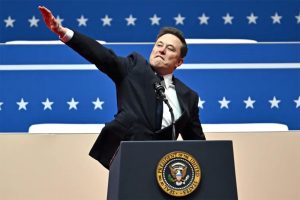
Musk’s apparent Nazi salute, along with his role with Trump’s DOGE, has triggered widespread opposition.
Among analysts tracking Tesla, its sharp sales decline in Europe is largely blamed on Musk’s political adventuring. That’s also considered a factor in the U.S. where he has lost the support of many on the political left due to his financial support of Trump’s 2024 presidential campaign and, more recently, the CEO’s role as head of the Department of Government Efficiency.
A Harvard/Harris poll taken in late March found 49% of Americans had an unfavorable view of Musk, with 39% seeing him favorably. That was down from a 44/44% split a month earlier.
The backlash has been severe enough to lead many Tesla owners to trade their vehicles in, often at a loss, as residual values fell sharply, according to Cox Automotive.
Tesla has yet other problems.
Tesla’s Edsel
The Cybertruck, the wedge-shaped electric pickup first delivered to customers in November 2023, has turned into a major bust, according to analysts, some observers comparing it to the failed Ford Edsel of the late 1950s. It ranked eighth among EVs on the California registration chart. While still ahead of Ford’s electric pickup, the F-150 Lightning, it lagged well behind Tesla chart-toppers, the Models Y and 3, as well as competing products such as the Honda Prologue and Hyundai Ioniq 5.
Complicating matters: ongoing manufacturing issues at Tesla plants in the U.S.
Perhaps the biggest test for Tesla will come in the months ahead as Tesla attempts to steer past the Musk political backlash while launching the first major update of its best-selling Model Y. A makeover of the Model 3 last year did little to forestall the brand’s sales decline.

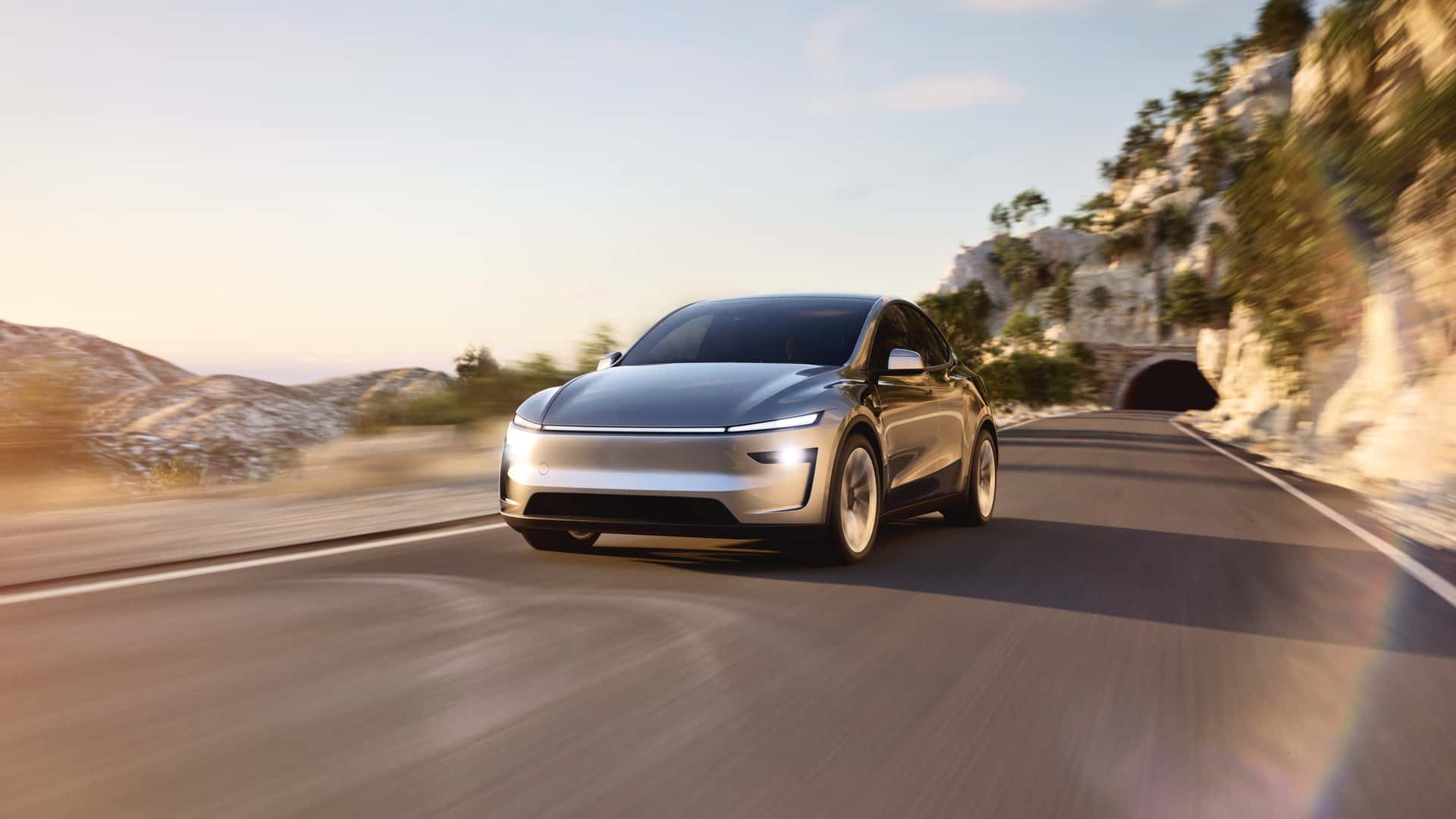
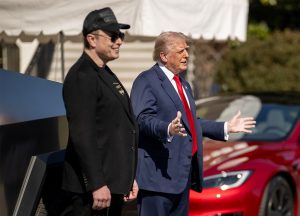
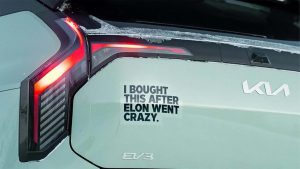
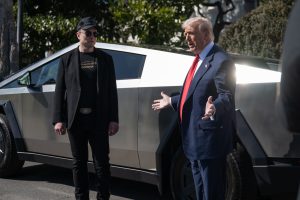
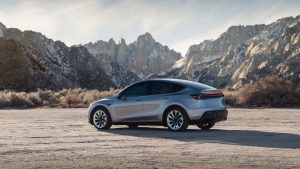
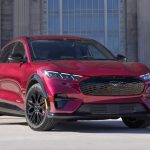
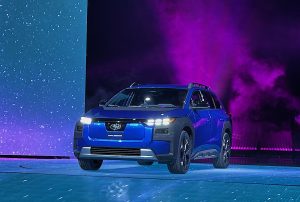
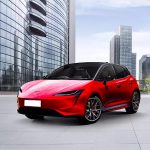
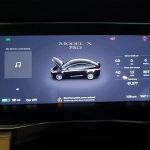
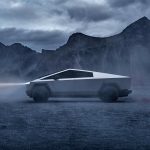
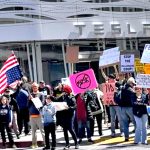
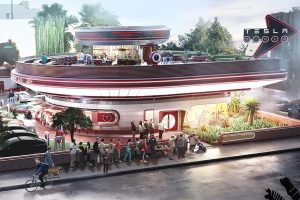
When you’re the only EV supplier you get 100%. As competitors enter the market guess what happens — you no longer get 100%.
Musk should be applauded to stand by his convictions and run DOGE to help all Americans. Just maybe, the narrow minded among us will eventually appreciate his efforts. If Ann Rand were still alive she’d be writing about Musk.